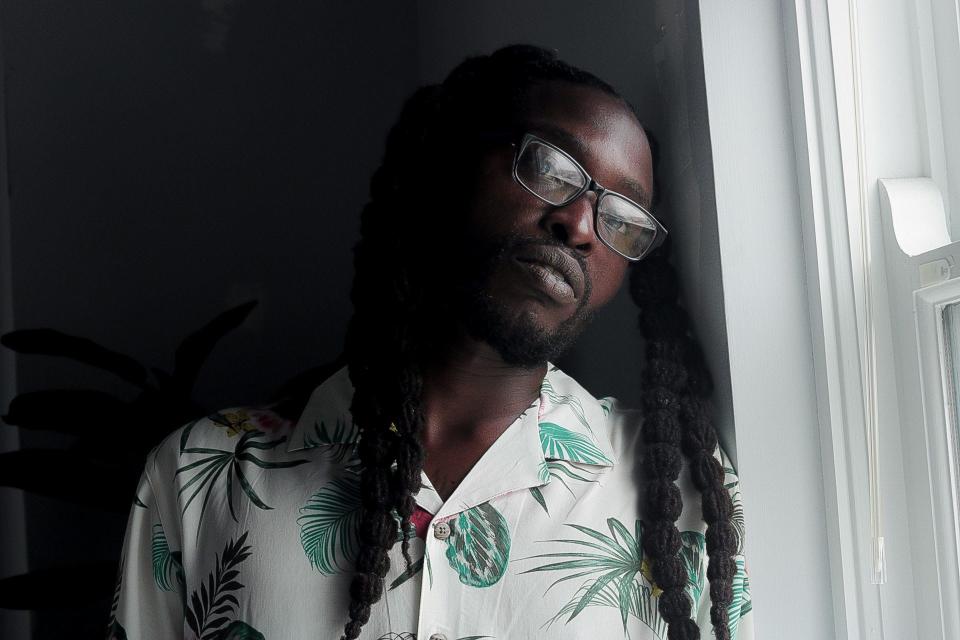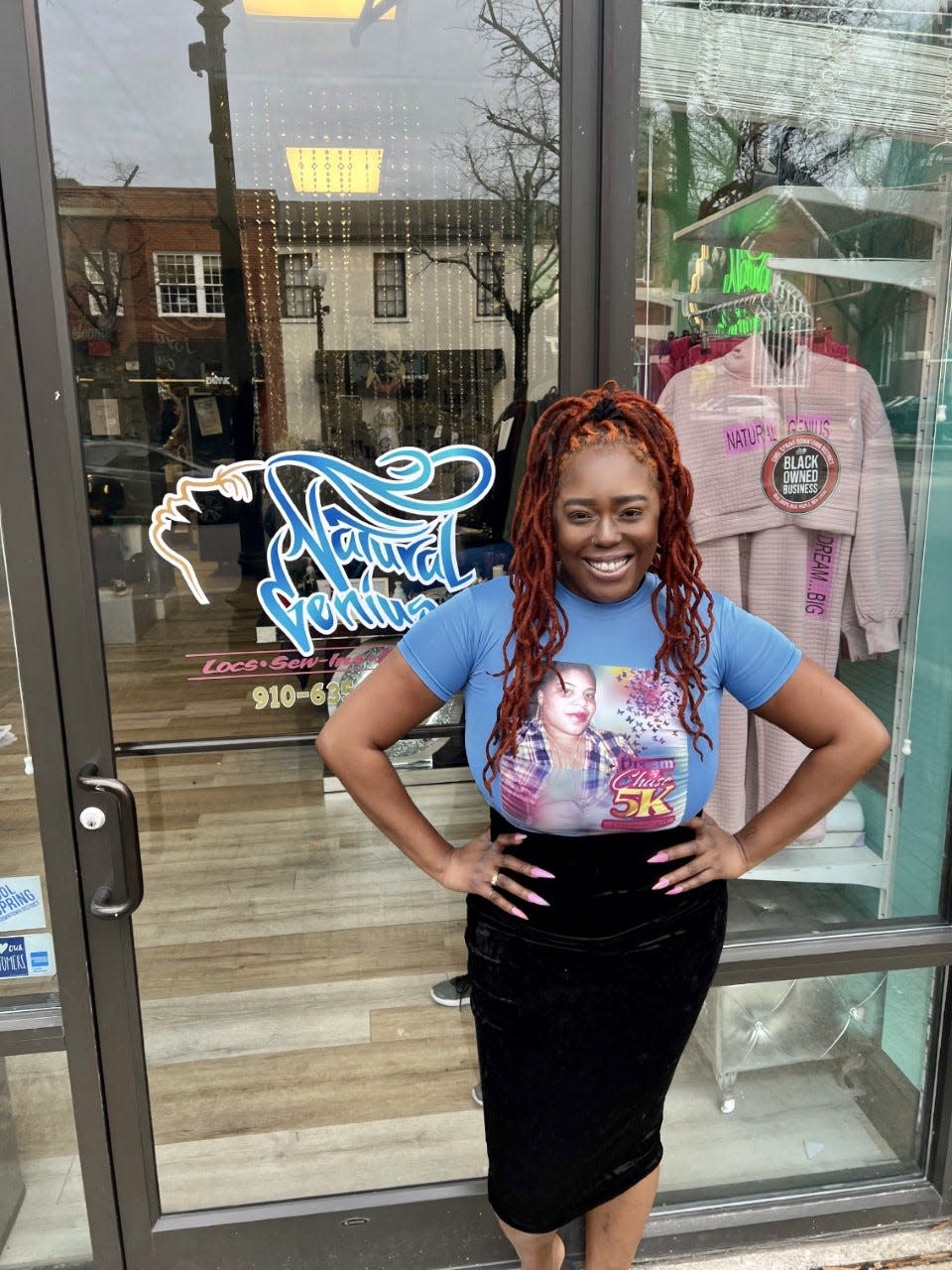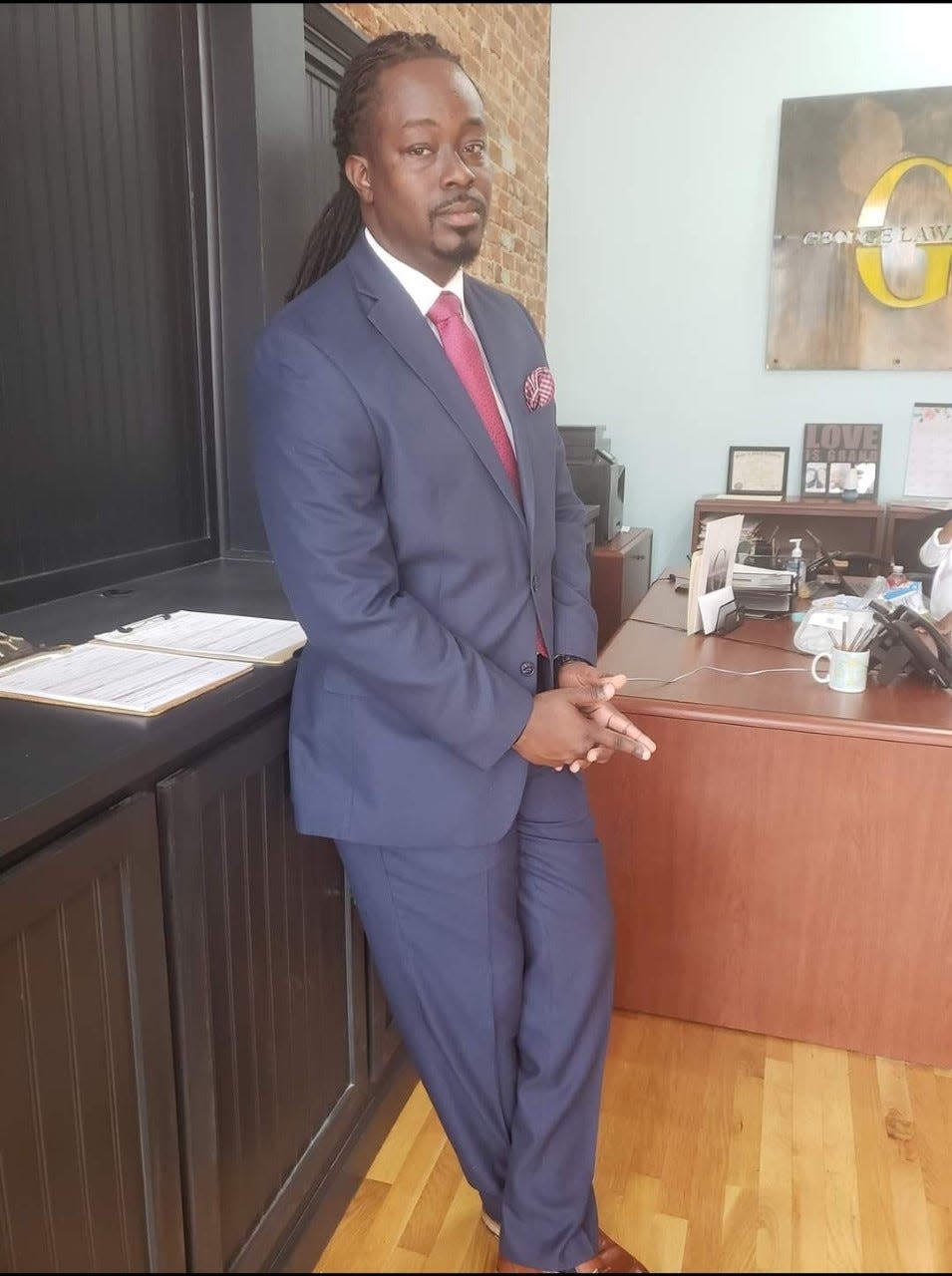Rakeem Jones: Fayetteville business owners talk about importance of ‘locs’ hairstyle
On New Year’s Day, a new law took effect that prevented schools in the state of Illinois from creating hairstyle-based dress code requirements.
Illinois Public Act 102-0360, also known as the Jett Hawkins law, was introduced after a 4-year-old was told that his braids were a violation of the school’s dress code. His mother, Ida Nelson, began to raise awareness on how stigmatizing children’s hair can impact their educational development.
More: Rakeem Jones: Fayetteville women, fellow 71st graduates, teach financial literacy
The stigma continues from the school into the workplace. In 2019, California legislators passed the CROWN Act, a law that prohibits racial discrimination based on traits historically associated with race, hair texture or hairstyle in the workplace. “CROWN” stands for Creating a Respectful and Open World for Natural Hair.

Last year, Fayetteville City Councilwoman Shakeyla Ingram made a request in which Fayetteville would adopt the CROWN Act, like Raleigh and Greensboro. In North Carolina, Senate Bill 165 was filed on February 25, 2021, to adopt the CROWN Act.
Rakeem Jones: Army veteran trading cryptocurrency early, wants to share what he’s learned
Rakeem Jones: A survivor of human trafficking shares her story
Loc technician Tressa Evans has been on this mission for 18 years. The Baltimore native is a Fayetteville State University graduate with a master’s degree in professional cosmetology and is the owner of Natural Genius Hair Salon on Hay Street in downtown Fayetteville.
She describes locs as a collection of shedded hair that locks into a curl pattern when shampooed. When palm-rolled, or twisted, the curl pattern creates a cylinder look.
Evans and Virgin Islands native Dominique Williams explained the difference between “locs” and “dreads.”
Rappers J.Cole, Jay-Z and the late artist Basquiat all have dreads, which are not maintained and grow freely. According to WIlliams, locs are associated with strength and energy while dreads are “rastas” and “shottas.”

Rastas, or followers of the Rastafari religion, wear dreadlocks as a sign of religious affiliation. One of the most famous Rastas, Bob Marley, was known for smoking “ganja” (I.E. marijuana). Consequently, much of society associates locs or dreads with smoking marijuana.
The media plays a role in a negative image of locs, often associating the hairstyle with criminal behavior. Father and business owner Kurin Keys started a movement called Decriminalize Locs to help remove the stigma associated with the hairstyle, because he is the father of sons with the hairstyle.
Contrary to the negative image, having a natural hairstyle, especially locs or dreads, is about growth and commitment. When speaking on the development of locs, Evans says: “Locs don’t always start off as the prettiest hairstyle. But, when you see how fast they grow, you are just as fast to create a commitment to yourself. They create a part of your lifestyle that you didn’t otherwise know existed.
“Some people grow waist-length in five years. If you apply the same commitment to any aspect of your life, it will grow just as fast. Locs symbolize the life we can grow when we are patient and consistent.”
A lawyer with locs
Being in the legal field, lawyer Tyran George understands how patience and consistency create growth. While in law school, George grew frustrated with traveling two hours for a haircut and grew his hair out.
After returning home for the summer, his sister started his first set of locs. He passed the bar and interviewed for about 10 jobs. But, he did not get hired.

At that point, he had not seen another lawyer with locs and felt that is why no one hired him. On his first day after being hired by Ron McSwain in the Cumberland County public defender’s office, he says a court deputy had a hard time believing he was a lawyer.
George says he did not see another lawyer with locs until a 2006 public defenders' conference in Wilmington. He cut his first set of locs in an effort to gain a broader range of clients. But while he did gain clients, he felt as if he “sold out,” or tried to conform to society’s idea of what a lawyer should look like.
In 2014,,he grew his locs back and continues to practice law on Gillespie Street in downtown Fayetteville.
Both Evans and George are working to erase the stigmas associated with locs and clear up misconceptions.
Locs, for example, are not just a “Black” hairstyle: There are a number of white people who wear them, and society often associates those who do with words and expressions such as “hippie,” “loves nature,” “rebellious” or “Bohemian.”
Huge savings: $1 for 6 months
Subscribe today to support local journalism and enjoy unlimited digital access including videos, apps, sports news, and more. Special introductory offer for new subscribers only.
George says whites who wear locs may even be looked down upon by other white Americans — similar to what can happen with Black Americans.
“So, that is one thing both groups have in common,” he says.
Peace to Evans, George and every activist getting active.
Rakeem “Keem” Jones is a community advocate and father of three from the Shaw Road/Bonnie Doone area of Fayetteville. He can be reached at keemj45@gmail.com.
This article originally appeared on The Fayetteville Observer: Rakeem Jones: Fayetteville business owners talk importance of ‘locs’

